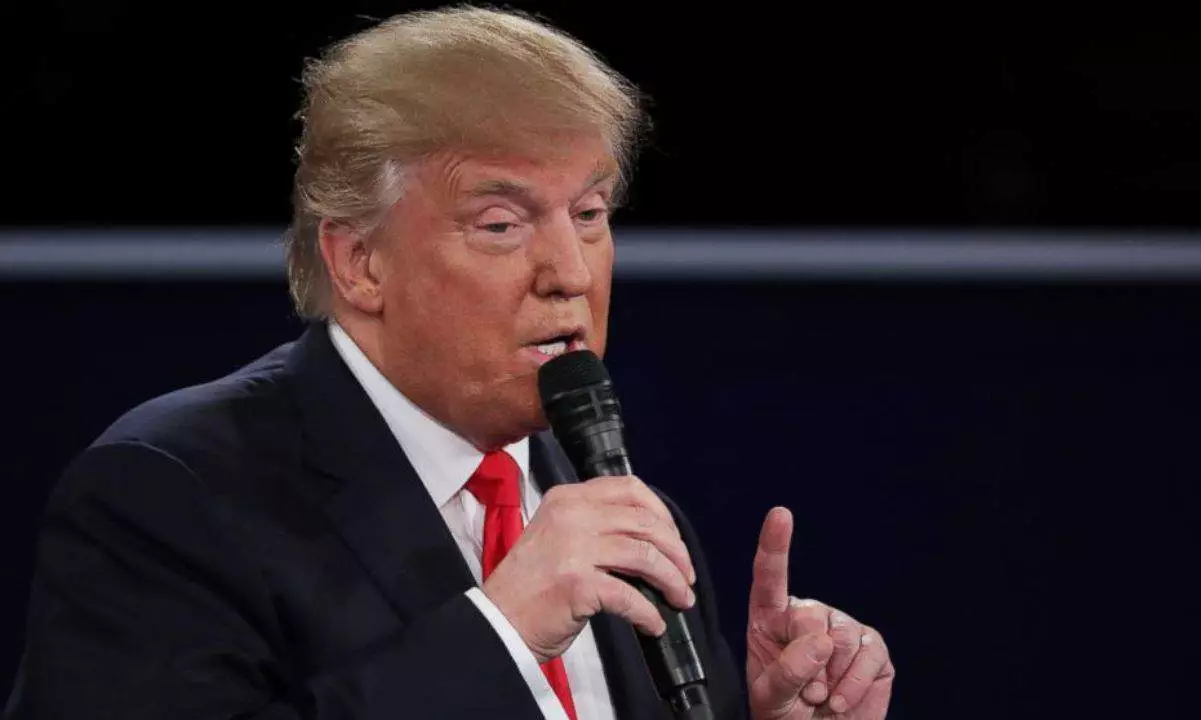In an unprecedented move that can only be described as a high-stakes gamble for the future of cryptocurrency, President Donald Trump granted clemency to the Mahe, Seychelles-based crypto exchange BitMEX and three of its key figures. The pardons have emerged as a focal point of intense scrutiny and debate, igniting a firestorm of opinions across the crypto landscape. Is this a calculated political maneuver, or does it herald a broader shift toward legitimizing cryptocurrency platforms that have skirted regulatory guidelines? The implications of these actions are far-reaching, and their impact will reverberate across financial markets for years to come.
BitMEX has been a controversial establishment since its inception in 2014, providing traders with the tools and leverage to speculate on cryptocurrencies at lightning speed. However, it has equally attracted the ire of regulators due to its perceived negligence concerning anti-money laundering (AML) and Know Your Customer (KYC) regulations. In January 2024, BitMEX and its parent company were slapped with a hefty $100 million fine for these shortcomings. With the spotlight now on its leadership due to the presidential pardons, the broader question remains—what does this mean for the integrity and regulation of cryptocurrency?
The Motives Behind the Pardons
The pardons are undeniably a power move from Trump as he rallies support from the burgeoning crypto community while seeking re-election. At the Libertarian Convention in May 2024, he demonstrated a keen awareness of his audience by vowing to pardon Ross Ulbricht, the infamous Silk Road founder. The timing of the BitMEX pardons further complicates this narrative by throwing a lifeline to prominent figures in the cryptocurrency sector who have faced legal repercussions.
Critics argue that these actions are not just about justice; they imply a troubling message about accountability at the highest levels of financial misconduct. Samuel Reed, BitMEX’s CTO, and his co-founders enjoyed a full pardon despite their admissions of guilt. The optics of this appear concerning. Are we now living in a landscape where financial crimes can be overridden by political favors?
The Ripple Effects on Cryptocurrency Regulation
The BitMEX pardons send a signal that could significantly affect the regulatory climate for cryptocurrencies. By effectively excusing high-profile violations, Trump risks encouraging other exchanges to view their regulatory responsibilities as minimal. As the chaos of unregulated markets reigns, the specter of future financial crises looms larger. For instance, Jim Cramer of CNBC wondered if SBF, the notorious FTX founder currently imprisoned for massive financial fraud, might be next in line for a presidential pardon.
While Trump draws praise for these lenient actions, we must consider the long-term consequences. Regulatory frameworks are designed not just to protect investors but to maintain order in the financial system. Tampering with these structures could erode public trust in both cryptocurrency and traditional financial institutions. Traders and investors look for stability and predictability—two things that might evaporate in the absence of credible and enforced regulations.
The Crypto Community’s Dilemma
With a whirlwind of opinions swirling around the pardons, the cryptocurrency community finds itself in a unique position. Will the future of cryptocurrency now hinge on favors granted from the Oval Office? Prominent figures like Ben Delo have lauded the actions as a “vindication,” appearing to successfully frame their criminal charges as mere political targeting rather than genuine breaches of law. If the conversation shifts from accountability to political leverage, how do we delineate right from wrong in a market built on principles of decentralization?
Furthermore, the personal testimonies from BitMEX’s founders illustrate a growing discontent with regulatory overreach. Delo posits that the prosecution was politically motivated and emphasized it was unfair for their exchange to be demonized to serve as a cautionary tale. While the sentiment is relatable to a community that has often felt persecuted, assertions of being wronged cannot rewrite the factual history of their operations.
The Road Ahead
As we navigate the aftermath of these historic pardons, the ramifications for cryptocurrency regulation remain uncertain. Other high-profile figures, such as Binance’s Changpeng Zhao, may be next in line for a potential pardon, raising further ethical considerations regarding accountability. Each presidential action has the power to reshape not only individual lives but also entire markets.
The BitMEX pardons highlight the juxtaposition between advocating for personal liberties and ensuring collective responsibility. As the balance continues to tip in favor of leniency for prominent figures, the general public must contemplate what this means for the future of justice and fairness in business. The tragic irony is that while some founders rejoice in their newfound freedom, traders and investors will ultimately face the consequences of a potentially unchecked market. As crypto heads toward an uncertain future, clarity remains essential—not only in law but in ethical governance as well.

